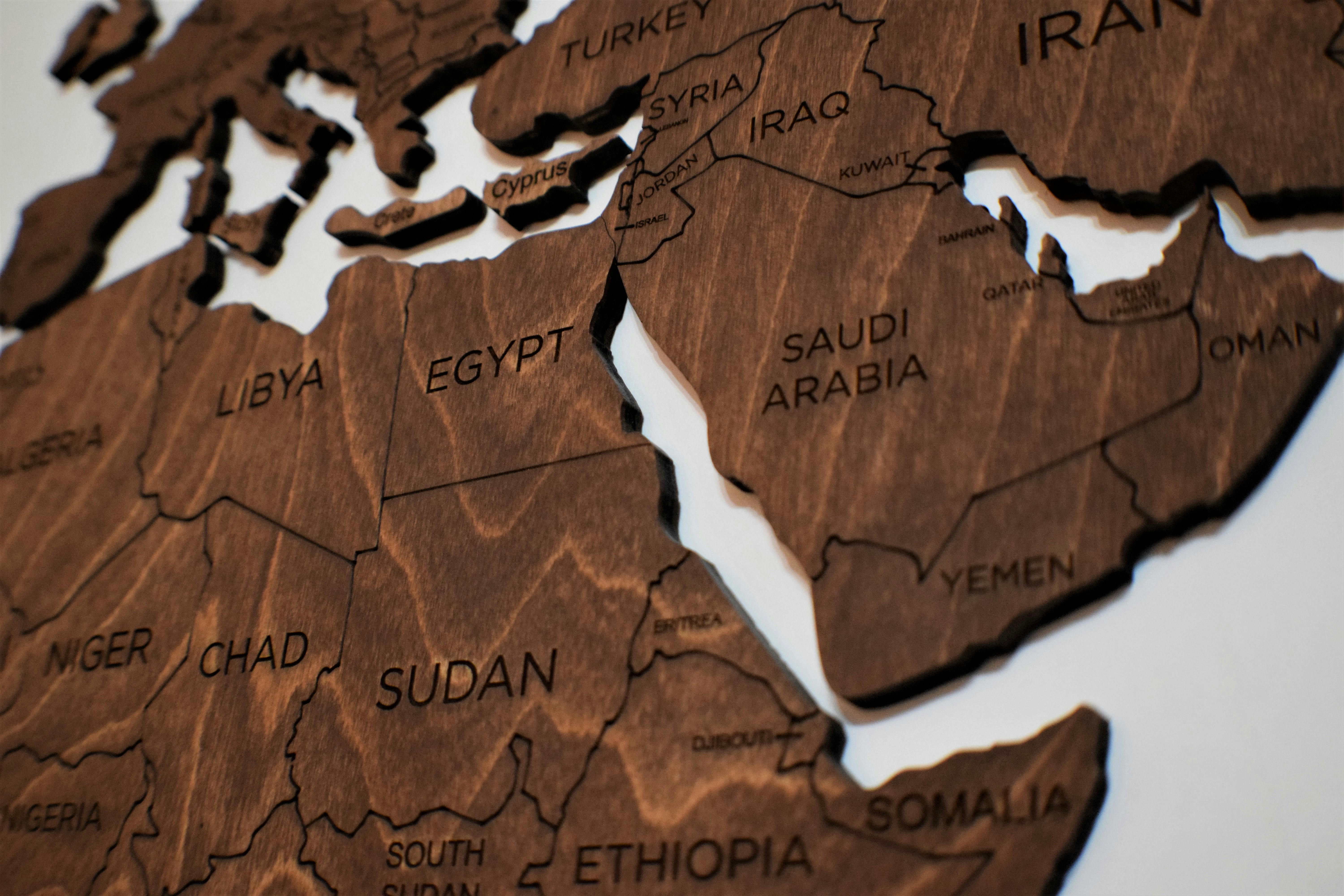
1. Location and Size of Libya
Libya is located in North Africa and is the 4th largest country in Africa by area. It is also the 16th largest in the world, spread across a vast stretch of approximately 1.8 million square kilometers (almost 700,000 square miles).
2. An Extremely Deserty Nation
About 90% of Libya is covered in desert. It isn't just any desert, it's the Sahara - the largest hot desert in the world. Simply put, the majority of the country's terrain is barren and arid.
3. One of the Least Populous Countries Globally
Despite being impressively large in terms of land area, Libya is one of the least densely populated countries in the world. Its population was a mere 6.8 million, according to the 2020 estimates, which means there's plenty of open space!
4. Libya was the Seat of the Ancient Libyan Civilization
Once upon a time, Libya was home to one of the oldest civilizations in the world - the ancient Libyan civilization, which can be traced back to 6,000 B.C.
5. The World’s Hottest Place
Libya holds the record for the highest recorded temperature ever. A scorching 58 degrees Celsius (136 degrees Fahrenheit) was recorded at Al 'Aziziyah on 13th September 1922, which is truly astonishing.
6. National Symbol: The Crescent and Star
The national symbol of Libya is the Crescent and Star, which can be seen on its current flag. The flag itself is unique in being the only national flag in the world with just one color and no design, seals, or emblems besides the crescent and star.
7. The Arch of Marcus Aurelius
Located in Tripoli, the capital city, the arch is the last remaining evidence of Roman occupation in Libya and an important historical monument. It was erected in 165 AD.
8. Libyan’s Proverbial Hospitality
Libyans are known for their hospitality. For instance, it is a tradition in Libya to serve libyan tea to guests. Known as “Attay”, it’s made of green tea, fresh mint leaves, sugar, and some other secret local ingredients.
9. Home to Five UNESCO World Heritage Sites
Libya houses five World Heritage sites: Archaeological Site of Cyrene, Archaeological Site of Leptis Magna, Rock-Art Sites of Tadrart Acacus, Archaeological Site of Sabratha and the Old Town of Ghadames.
10. The Man-Made River
Did you know that Libya is home to the world's largest irrigation project? It's called the "Great Man-Made River," a network of pipes that transport water from the Sahara Desert's aquifers to the populated coastal areas.
11. Oil Reserves in Libya
Libya boasts the largest proven oil reserves in Africa with 48 billion barrels in 2015. It's the country's biggest contributor to GDP, accounting for more than half of it.
12. Known for the Finest Dates
Libya grows some of the world's finest dates. Look for the unique Al Khadrawi and Tagyat varieties if you ever get a chance to sample some.
13. One of the Safest Countries in Africa
Despite its recent turbulent history, Libya has historically been one of the safest countries in Africa. The crime rates, in general, are relatively low.
14. Housing for Everyone
A Law, upon establishment in 1978, asserted that owning a home is a natural human right and no citizen of Libya should remain homeless. This initiative led to the construction of ample free housing projects in the country.
15. World's Best Preserved Ancient Roman City
With the Archaeological Site of Leptis Magna in Libya, you have one of the most spectacular and unspoiled Roman ruins in the Mediterranean.
16. Italian Influence
Italian influence in Libya is undeniable. From 1911 to 1951, Libya was an Italian colony which largely influenced its architecture, cuisine and language. There are Libyans who still speak Italian today.
17. Major coffee consumer
Libyans love coffee! On average, an individual consumes about 10 kilograms each year, making them one of the top coffee-consuming nations globally.
18. Unique Wildlife
Because of its different habitats incorporating deserts, mountains, and coastal areas, you can find species that aren't easily spotted elsewhere, like slender-horned gazelles, Barbary sheep, and desert hedgehogs.
19. A Literate Nation
Education is free and mandatory for all Libyans from the age of 6 up to secondary level. As a result, Libya has one of the highest literacy rates in North Africa, estimated to be 91%.
20. The Pearl of the Mediterranean
Libya's capital, Tripoli, is also known as the "Pearl of the Mediterranean." It boasts a unique combination of modernity and ancient history, with numerous beautiful Italian-style old city areas, buildings, and markets.